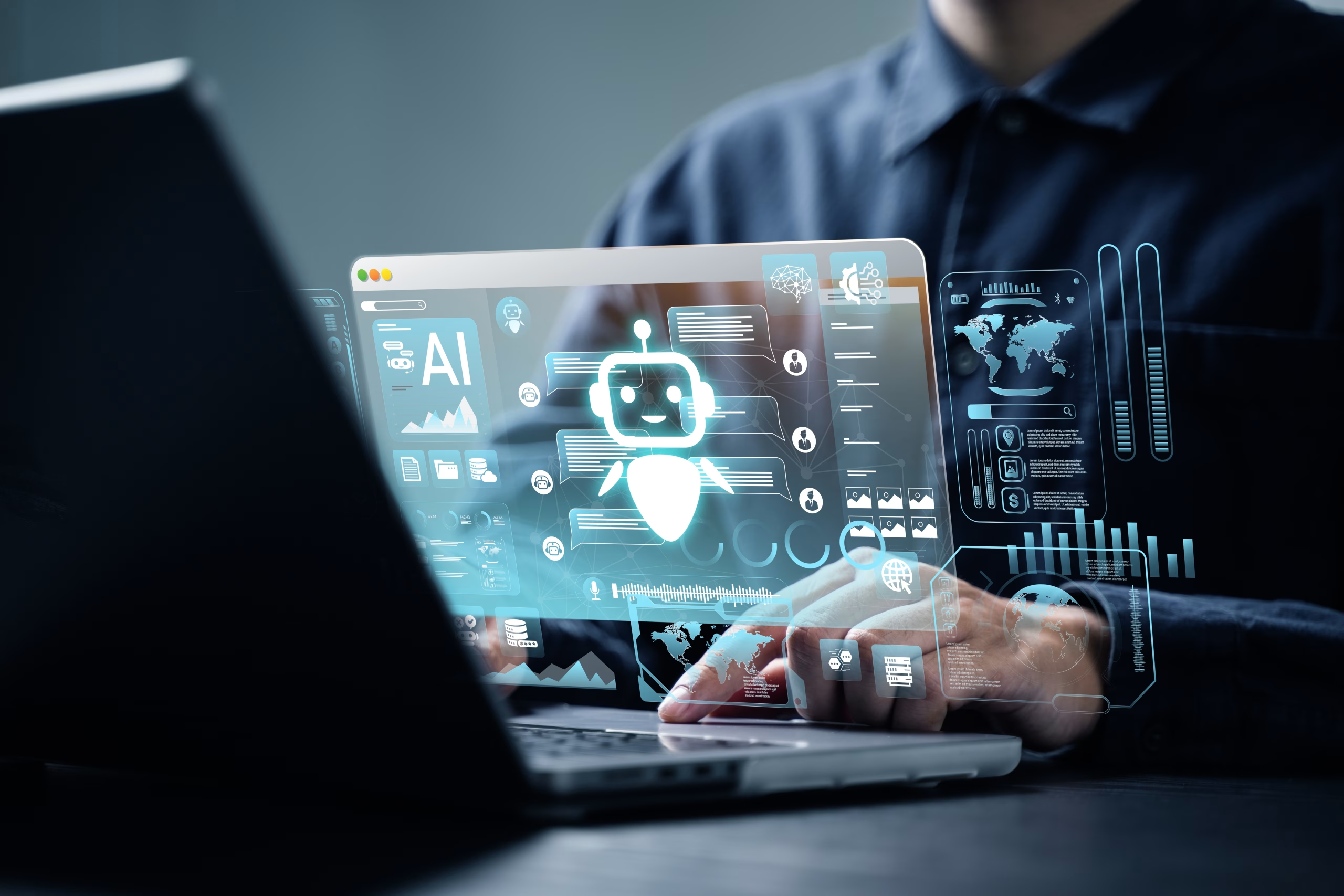
Work less, produce more: thanks to AI agents? The paradox of augmented productivity
A true productivity catalyst
The contribution of AI to productivity is undeniable. In fields like content creation, language models generate coherent and relevant texts in seconds, transforming how content is produced at scale. For developers, tools like GitHub Copilot assist in coding by detecting errors and suggesting code, drastically speeding up development cycles. Customer service teams are seeing their capabilities multiply thanks to smart chatbots handling most queries, freeing human agents to focus on complex cases.
More sophisticated AI agents can now orchestrate complex tasks—from planning marketing campaigns to conducting financial analyses—by compiling information, making micro-decisions, and executing actions.
This automation and augmentation of human capabilities naturally lead to a rethinking of work organization. If AI can handle a significant share of repetitive and time-consuming tasks, couldn’t we reallocate that time to higher-value activities, innovation, or simply better work-life balance? The idea of a four-day workweek or more flexible work models is gaining traction—largely thanks to this technological revolution.
To move beyond abstract visions, let’s look at how AI is already being used across various departments and industries:
-
Marketing – Retail Sector: a CRM manager can now rely on an AI agent to segment audiences, auto-generate email campaigns, produce A/B test variants, and analyze results within hours. Operational time is drastically reduced, allowing space for strategic thinking and creativity.
-
Customer Service – Telecommunications: a platform equipped with a chatbot based on an advanced language model handles up to 70% of incoming requests. Human teams focus on complex and sensitive cases. The customer experience improves, response times shrink, and satisfaction rates increase.
-
Human Resources – Industrial Sector: AI agents write job postings, screen and pre-qualify applicants, and suggest interview questions tailored to each profile. HR professionals save valuable time and can refocus on human support and company culture.
These use cases highlight one essential truth: AI does not replace employees—it gives them back time and value.
The failure of full automation: humans as irreplaceable orchestrators
However, a large-scale experiment conducted in China casts a harsh light on the limits of total automation and tempers unbridled enthusiasm. A store managed entirely by AI recently ended in failure. This concept, which removed all human personnel in favor of virtual assistants and automated systems, led to a disastrous customer experience. Customers were left confused by rigid interfaces, unable to locate products without human guidance, and increasingly frustrated by the system’s inability to manage the unexpected or provide empathetic interactions. Result: the store shut down almost as quickly as it opened.
This cautionary tale underscores a crucial point: AI is an extraordinary tool for efficiency and capability enhancement, but it cannot replace humans in all contexts. Human skills are irreplaceable when it comes to understanding nuanced needs, managing the unexpected, showing empathy, creatively solving unscripted problems, and creating genuine human connection.
AI and humans: toward a more skilled and effective team
This double reality—the explosion of productivity on one side and the failure of full automation on the other—reveals the current tension. AI is profoundly changing the nature of work, but it’s not replacing it entirely. It amplifies human capabilities, allowing us to reach unprecedented levels of efficiency and creativity. But it neither diminishes the value nor the necessity of human involvement.
On the contrary, our vision is of AI-augmented teams that not only become more productive but also more skilled. AI pushes us to focus on what makes us unique: critical thinking, strategic reasoning, emotional intelligence, adaptability, and the ability to innovate beyond pre-existing frameworks. It frees us from routine tasks, enabling us to deepen our expertise, refine our analysis, and spend more time on customer relationships and creativity.
AI agents are powerful levers—but they require human direction, supervision, and final judgment to ensure relevance, ethics, and quality.
The real challenge: human + AI collaboration
The real challenge for businesses is not choosing between humans and AI, but creating an effective symbiosis. It’s about understanding how AI can unlock human potential by automating low-value tasks, allowing talent to focus on innovation, customer relationships, and complex decision-making. Working less and producing more becomes a reality—not by eliminating the human—but by repositioning them at the heart of a process augmented by AI in service of human ingenuity.
How do you envision integrating AI into your teams to unlock their full potential? Are you ready to train your people for this new era of human-machine collaboration? Contact us to explore the strategies that will help your company thrive with AI.
